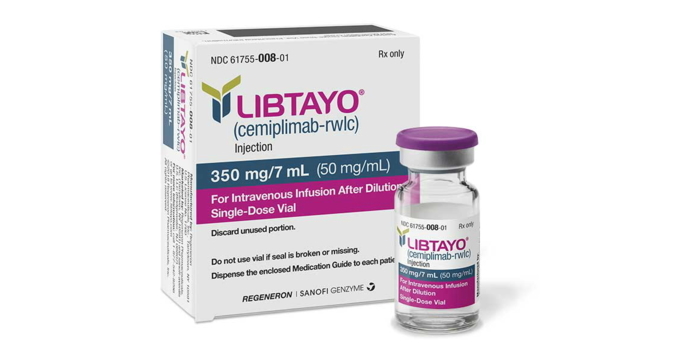Regeneron pairs with BioNTech on melanoma immunotherapy

Regeneron and Sanofi’s PD-1 inhibitor Libtayo will be tested in tandem with a cancer vaccine developed by BioNTech in melanoma in people who have failed treatment with other checkpoint inhibitors.
The two companies will carry out a phase 2 trial of Libtayo (cemiplimab) alongside BioNTech’s mRNA cancer immunotherapy BNT111, which is designed to stimulate immune responses against four cancer-related antigens: NY-ESO-1, MAGE-A3, tyrosinase, and TPTE.
The recruitment of BioNTech as a partner in melanoma comes after Regeneron and Sanofi decided to abandon development of Libtayo with their recently-approved anti-CD38 drug Sarclisa (isatuximab) in that indication.
Melanoma was the first cancer to be targeted by the checkpoint inhibitor class several years ago when Bristol-Myers Squibb’s Opdivo (nivolumab) and Merck & Co/MSD’s Keytruda (pembrolizumab) were both approved as second-line treatments for the disease within a few weeks of each other.
Since then, PD-1/PD-L1 inhibitors have moved into the first-line setting, and at the moment the combination of Opdivo and BMS’ CTLA4 inhibitor Yervoy (ipilimumab) – another immune checkpoint inhibitor – has become the go-to therapy for many oncologists.
The problem is that while 30% to 40% of melanoma patients get a long-lasting response to checkpoint inhibitor therapy, in the majority the drugs either don’t work at all or lose their potency over time allowing the cancer to come back.
Regeneron and BioNTech are hoping that adding BNT111 to anti-PD-1 therapy with Libtayo will overcome the resistance mechanisms that are present in some tumours, and increase the proportion of patients who respond to immunotherapy.
The phase 2 trial will recruit patients with advanced melanoma that can’t be treated with surgery who are refractory to or have relapsed after PD-1 drugs, and the costs of running it will be shared by the two partners. It is due to start before the end of the year.
“The combination of Libtayo and BNT111…has the potential to augment the immune system’s ability to effectively recognise melanoma in multiple ways and hopefully improve immune targeting to control the cancer,” commented Regeneron’s head of translational science and oncology Israel Lowy.
Libtayo was a late entrant into the PD-1/PD-L1 inhibitor market and while it has been able to carve out a small niche in cutaneous squamous cell carcinoma (CSCC), another form of skin cancer, it’s still a bit player.
Sanofi reported ex-US sales of €27 million ($32 million) for Libtayo in the first half of this year. Regeneron records US sales, but isn’t due to report its second quarter until later this week. It made just under $62 million from the drug in the first quarter.
The two partners are hoping to grow the drug with new indications such as basal cell carcinoma – another form of skin cancer – and non-small cell lung cancer (NSCLC), although they will face still competition in the latter from Merck’s market leader Keytruda.
Meanwhile, BNT111 is the lead candidate in BioNTech’s FixVacc cancer vaccines programme, which dominates its pipeline despite the recent close attention to the German biotech’s coronavirus candidate, partnered with Pfizer.
It is one of five FixVacc vaccines in early-stage clinical testing, along with candidates for prostate, head and neck, ovarian and triple-negative breast cancer.












